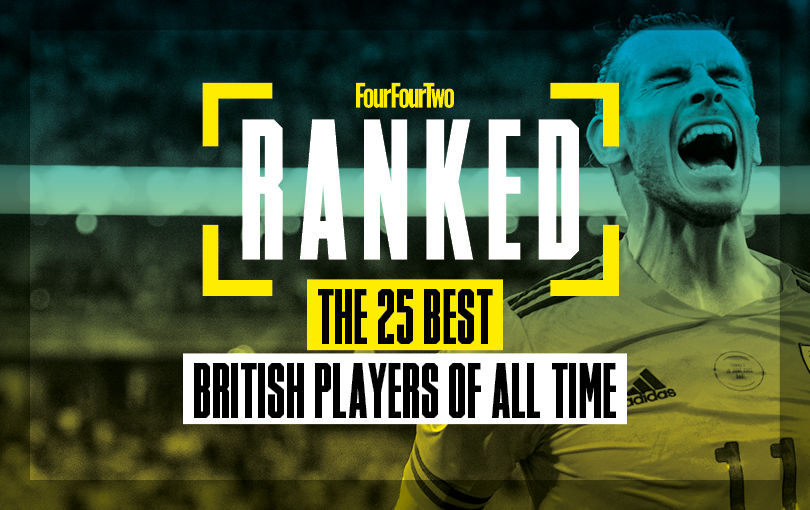
The best British players of all time have very little in common. Ask them their nationality… and you might get half a dozen answers.
That makes this the impossible job. Far more difficult than managing one of these individual nations: how can you compare players across eras – but equally, across achievements? The expectation of a Northern Irish player is so much different to that of an English one, for a start.
So we've ranked them by what they've done for their individual nation and how that compares to one another. We've put them into some kind of combined table – so who would you put top?
The 25 best British players of all time
The individual lists:
Ranked! The 25 best English players ever
Ranked! The 10 best Northern Irish players ever
Ranked! The 10 best Scottish players ever
Ranked! The 10 best Welsh players ever
25. Gary Lineker
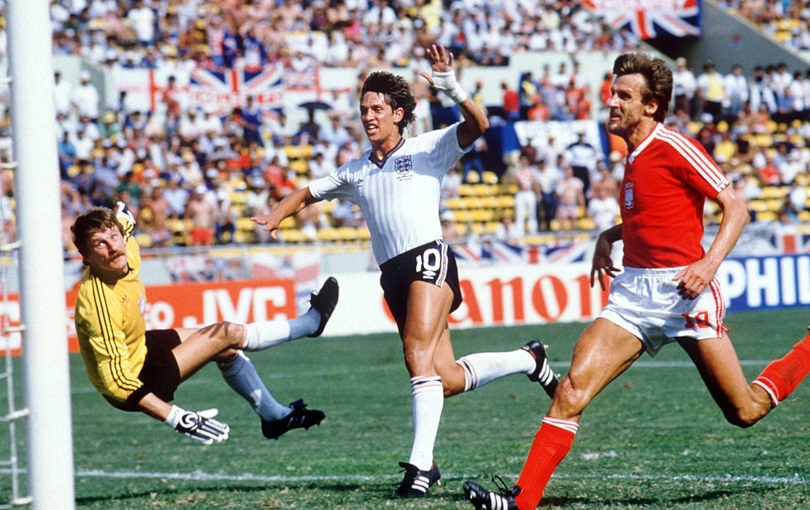
England’s principle attacking threat in the latter half of the 80s, Lineker has scored more World Cup goals than any other Three Lions player – and scooped the Golden Boot at the 1986 tournament.
Famously never booked, the current Match of the Day anchor’s club career took him from boyhood club Leicester to Everton, Barcelona, Spurs – with whom he won the FA Cup in 1991 – and Japanese outfit Nagoya Grampus Eight.
24. Billy McNeill
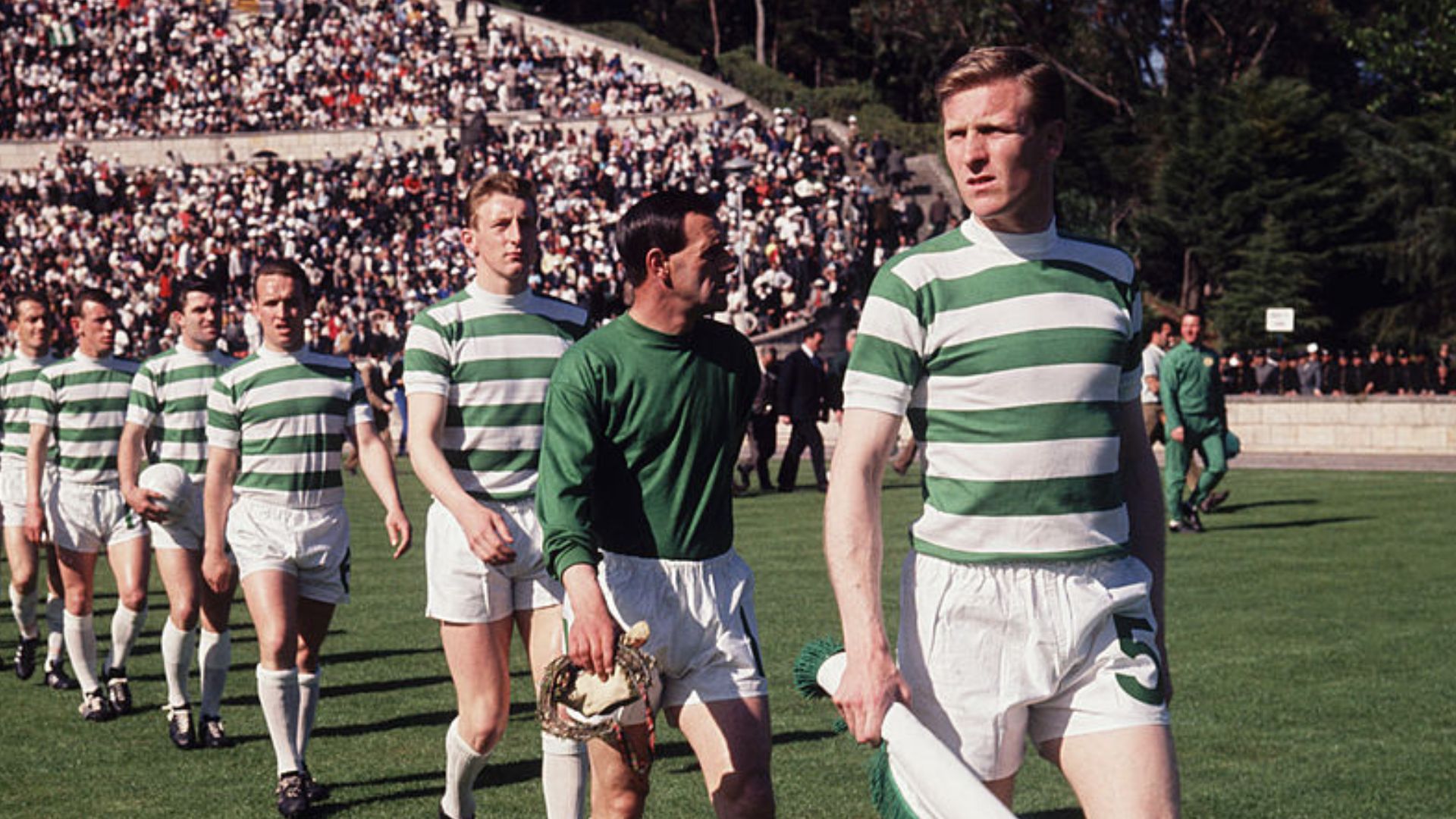
Cesar was a giant of a man, on and off the pitch. He is arguably the most influential player in Celtic’s history, having played nearly 500 times for The Hoops and amassing 23 trophies.
Not least captaining them to the European Cup in 1967, when they became the first British club to lift the trophy.
23. Billy Meredith
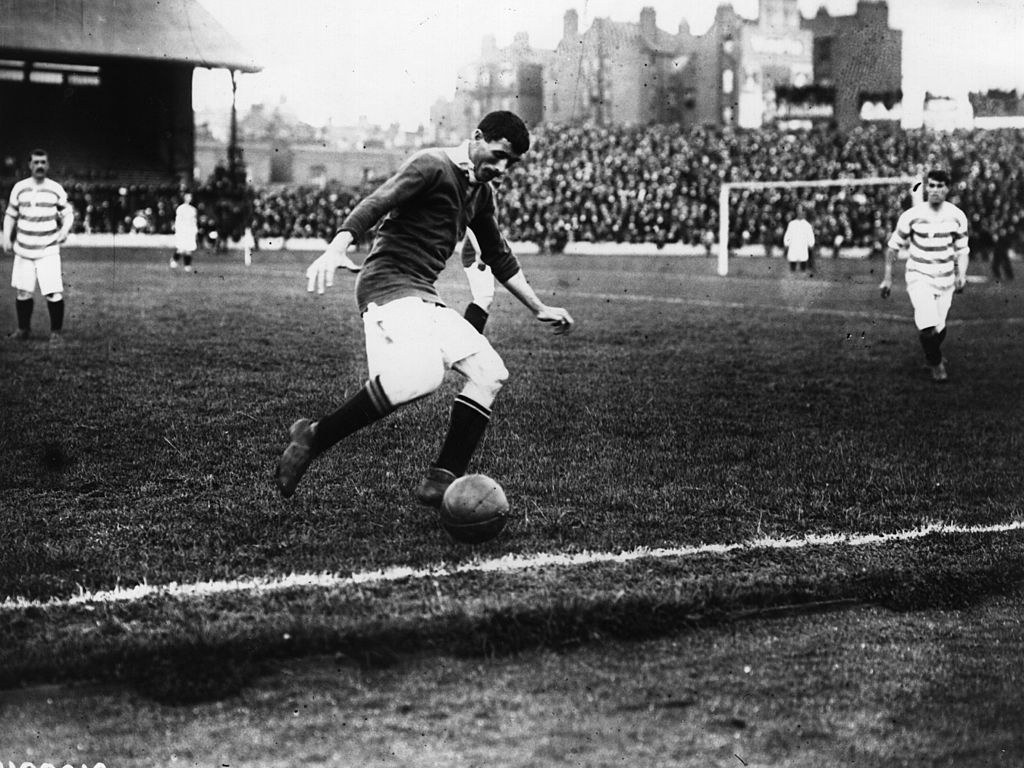
One of football’s first superstars, the rakish, toothpick-chewing Meredith starred in a film, was banned for bribing an opponent, formed the PFA’s forerunner and played from 1893 right up to 1924, but most impressively of all, he won fans at Manchester City and Manchester United. Making more than 300 league appearances for each, winning four trophies, will have that effect.
Meredith was strong, fit and agile, which many attributed to the winger’s work in the mines between the ages of 12 and 21. We wouldn’t recommend it.
22. Harry Kane
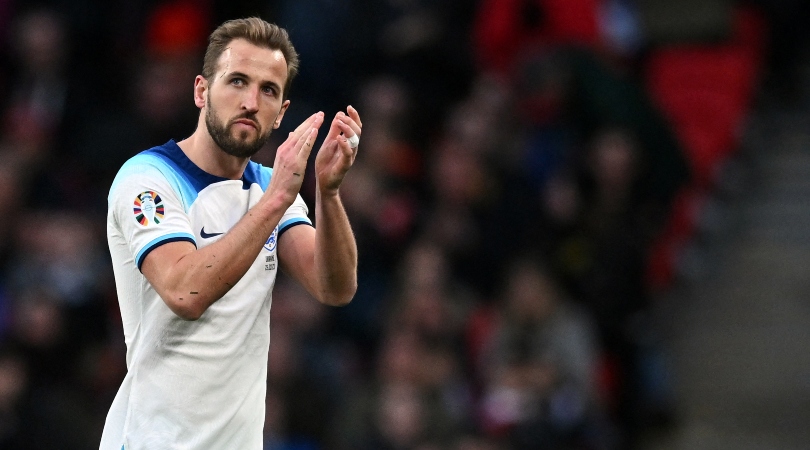
Undoubtedly one of the very best strikers on the planet right now, Harry Kane is also already in the history books.
2023 marked the marksman breaking the all-time scoring record for Tottenham before doing the same with England weeks later. Alan Shearer’s longstanding record of 260 Premier League goals also ought to be within his reach before he retires.
21. Danny Blanchflower
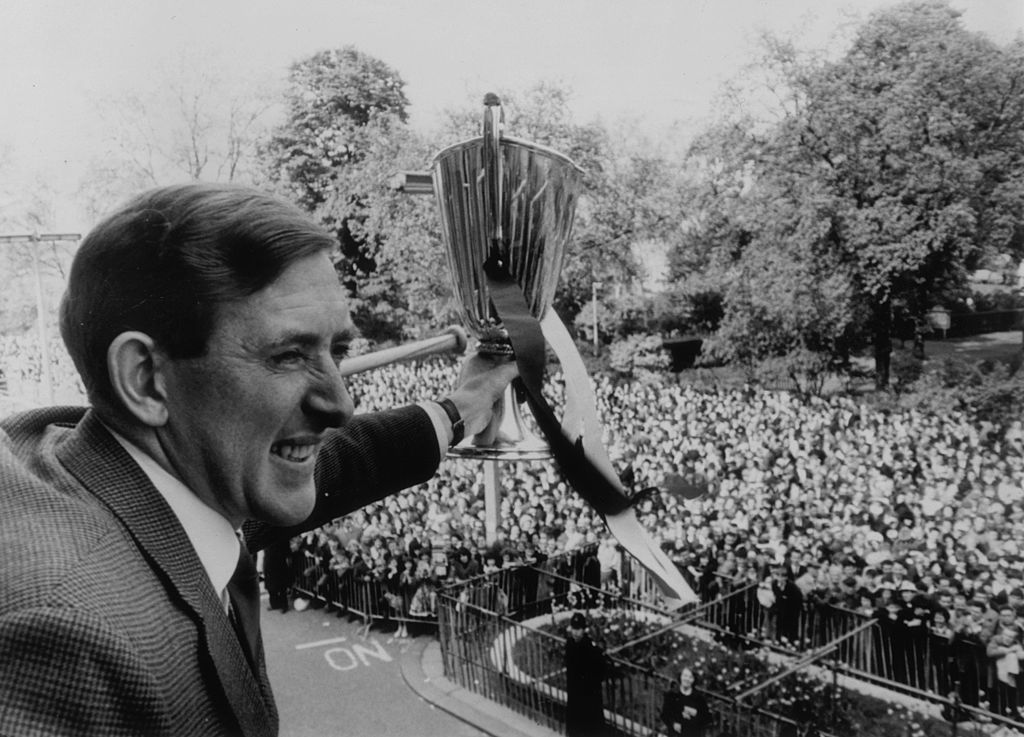
The Spurs legend also achieved the status for his country. Blanchflower captained Northern Ireland to the quarter-finals of the 1958 World Cup, and he was also the first player in Northern Ireland history to reach over 50 caps. He was the country’s sporting poster boy before George Best came along.
20. Neville Southall
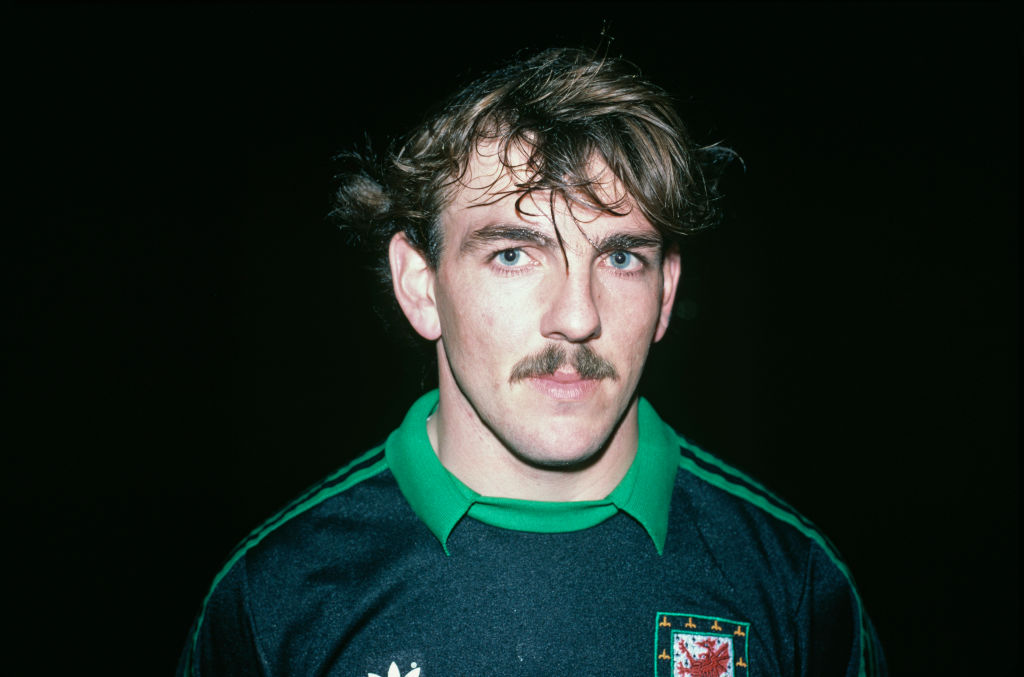
In the late 1980s, Southall was probably the world’s best goalkeeper. That’s no exaggeration. His reactions were peerless, a flurry of limbs repelling shots in phenomenal displays for Wales and Everton. He lifted five major trophies, received two Ballon d’Or nominations and remains the most recent keeper to win FWA Footballer of the Year… 37 years ago.
The former binman and future campaigner was unique. One story encapsulates him well. Everton beat Manchester United 1-0 in the 1995 FA Cup Final with a masterclass from their 36-year-old goalkeeper, but while his team-mates partied, Southall drove home, gave a lift to some stranded United fans, and was in bed by 10.30pm.
19. Alan Shearer
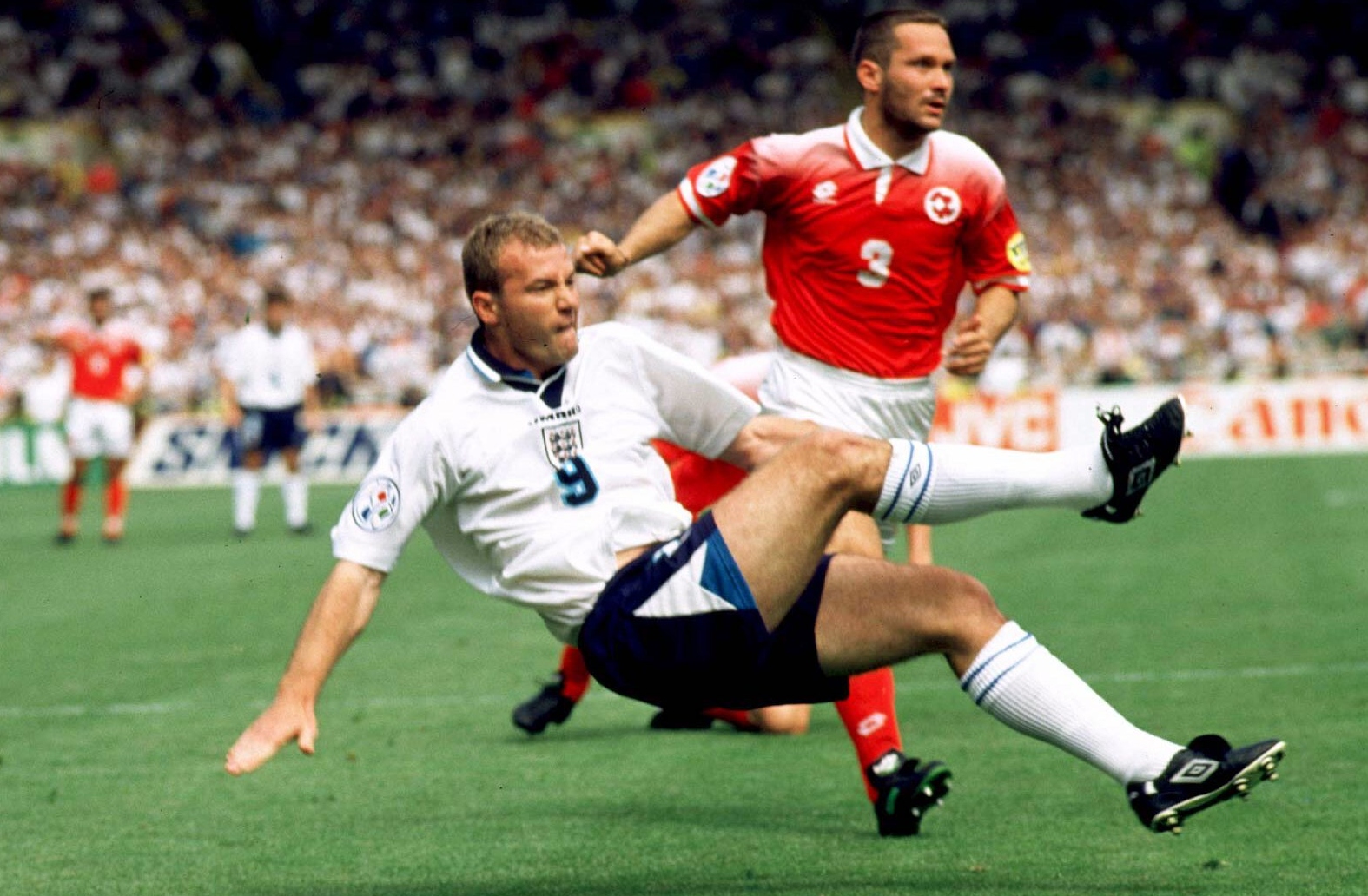
Unstoppably prolific at his peak, Shearer won the Premier League Golden Boot in 1994/95, 1995/96 and 1996/97 – firing Blackburn to the title as one half of the ‘SAS’ partnership with Chris Sutton in the former.
A legend at Ewood Park and even more so at boyhood club Newcastle – where he spent the last decade of his career – he found the net 30 times in 63 games for England, including five to finish as top scorer at Euro 96.
18. Jim Baxter
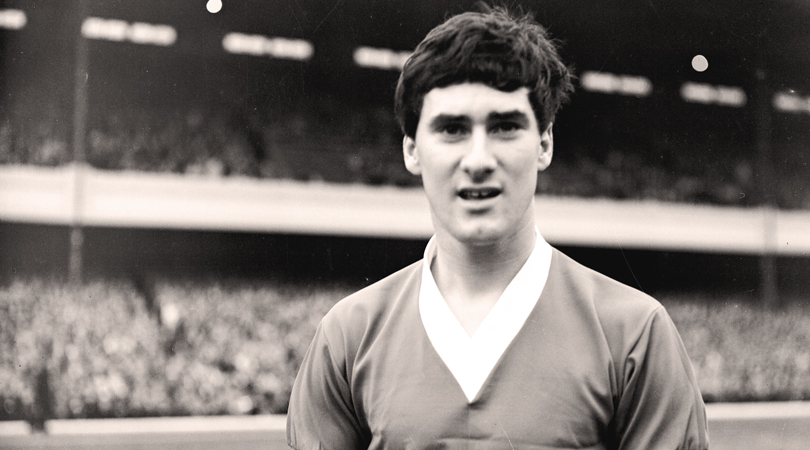
Quite simply, a born entertainer. One of the most talented players Scotland has ever produced.
‘Slim Jim’ is perhaps best known for his role in the 3-2 win over then-world champions England, which included him winding up the home crowd and opposition by doing keepy-ups in open play. Baxter secured 10 trophies for Rangers during a successful five-year spell in the 60s, and was blessed with rare technical ability.
17. David Beckham
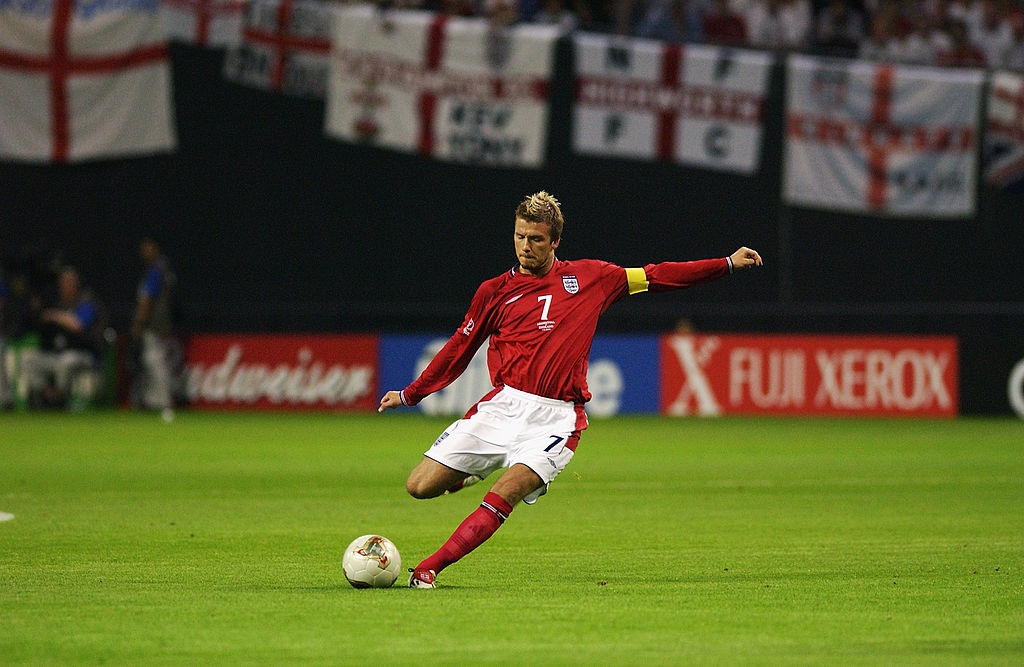
For over a decade, Beckham was the face of the England team – captaining them for six years and making headlines for reasons good (that free-kick against Greece) and bad (that red card against Argentina).
Synonymous with pinpoint crosses and laser-guided set-piece deliveries, he turned out almost 400 times for Manchester United – with whom he won six league titles and the Champions League – before spells with Real Madrid, LA Galaxy, AC Milan and PSG.
16. Pat Jennings
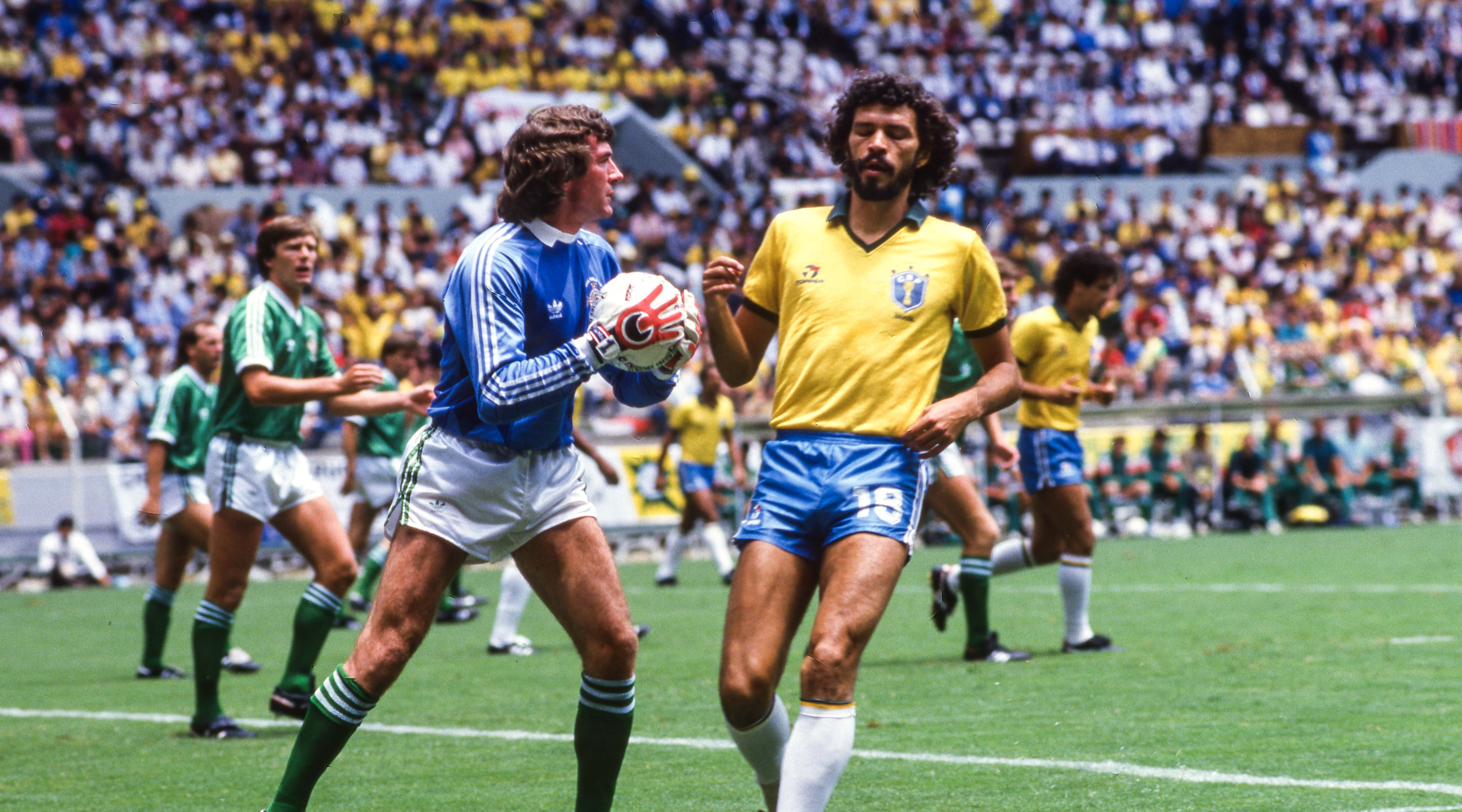
Jennings played in both of Northern Ireland’s World Cup campaigns of the 1980s, and at the time was the oldest player to appear in one, at the age of 41 at Mexico ’86.
Jennings was inducted into the English Hall of Fame in 2003 and is considered Northern Ireland’s greatest ever goalkeeper – but for many, he's one of the greatest goalkeepers of all time, of any nationality, able to pluck the ball out of the sky with one hand during his peak.
15. Mark Hughes
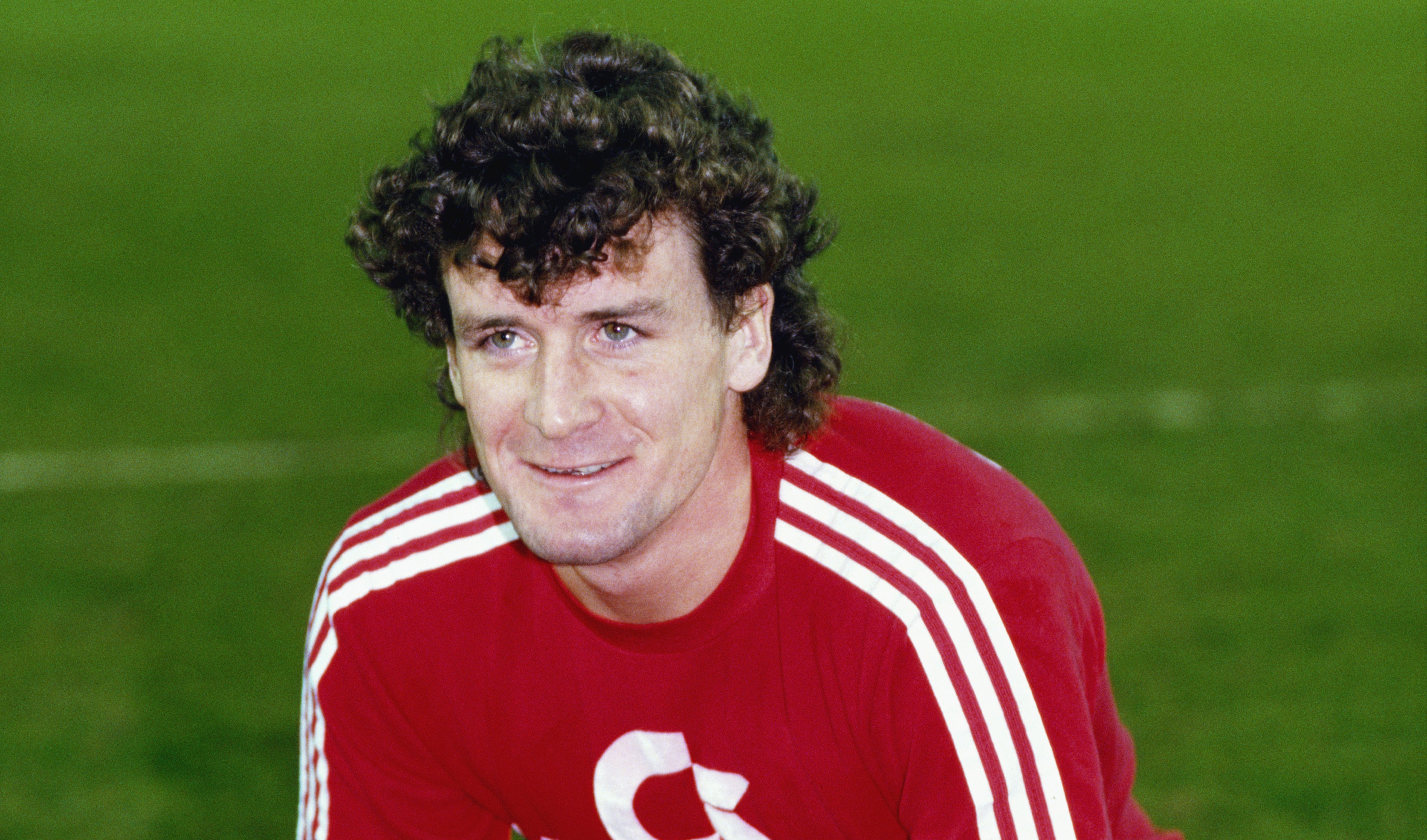
The PFA Young Player of the Year became a two-time PFA Player of the Year and one-time Ballon d’Or contender with 11 major honours and a delicious international highlights reel, featuring a debut winner against England and an acrobatic stunner against Spain a year later. Hughes turned the volley into an artform.
He also played twice on the same day in 1987, for Wales and Bayern Munich. Committed, eh?
14. Paul Gascoigne
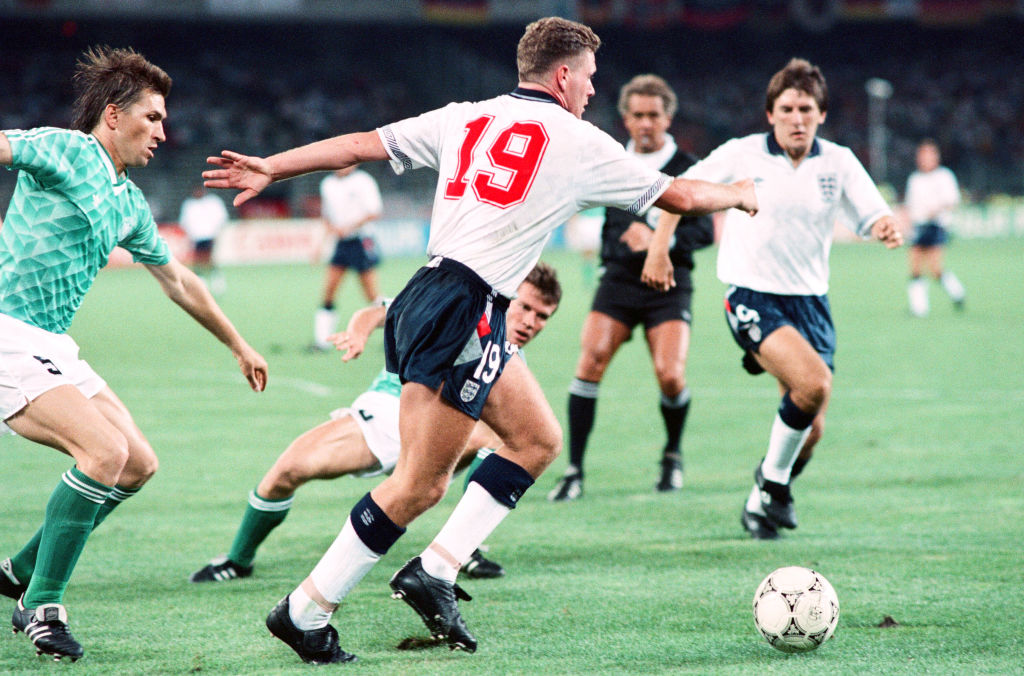
A supremely talented player and an equally brilliant character, ‘Gazza’ was the great entertainer of the England team throughout the 90s – not least when football came home at Euro 96.
From tears in Turin to that glorious goal against Scotland (followed by one of his various notable celebrations, the ‘dentist’s chair’), his was career – which, at club level, saw him turn out for local team Newcastle, Spurs, Lazio, Rangers and more – full of indelible moments.
13. Ryan Giggs
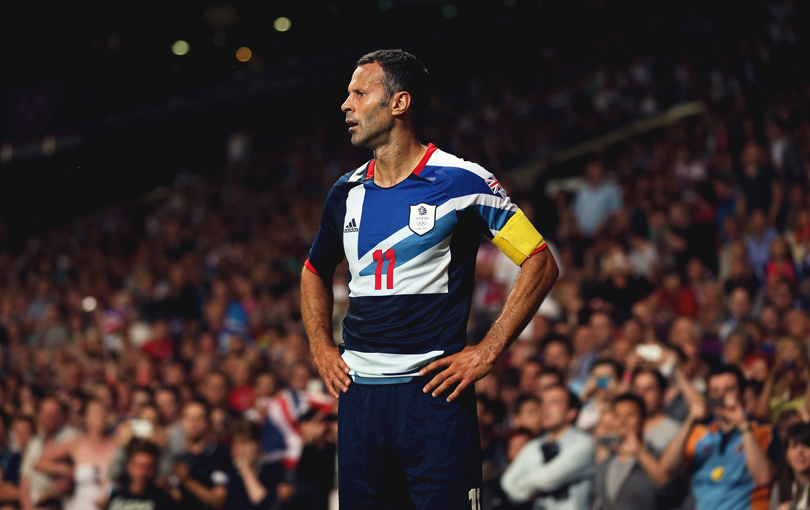
Most Cymru fans wouldn’t put Giggs in their all-time XI, such is the distaste for his priorities as a player. Injury-free, he nonetheless played in just 57% of all Wales games between his first cap and international retirement, then represented Manchester United for another seven years.
But, if we’re talking greats, you can’t argue with 22 major trophies and the sixth-most top-flight appearances in English football.
12. Gordon Banks
They said he was as ‘safe as the Banks of England’ – and if you’ve seen his ‘save of the century’ from Pele at the 1970 World Cup, you’ll understand why (if, somehow, you haven’t, correct that right away).
The man between the sticks for England’s finest hour – their 1966 World Cup triumph, of course – was named FIFA Goalkeeper of the Year six years in a row between 1966 and 1971, while the IFFHS ranked him as the second-best ‘keeper of the 20th century – behind only Lev Yashin.
11. Ian Rush
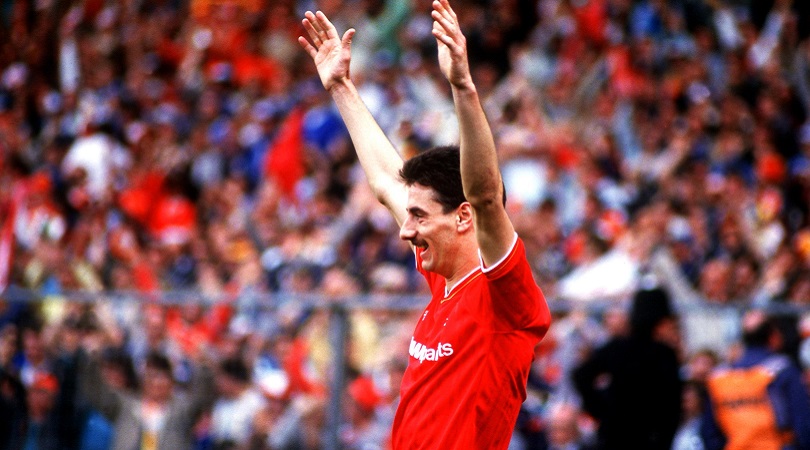
Forget the ’90s – in the 1980s, Rush was elite. How else do you score the fourth-most top-flight goals in English post-war history?
The goals flowed in tandem with trophies, with two European Cups, five league titles and eight domestic cups jostling for room on Rush’s mantelpiece with his European Golden Boot, English Golden Boot, FWA Footballer of the Year, PFA Player of the Year and PFA Young Player of the Year awards. He finished 4th in the Ballon d’Or after netting 47 goals (no penalties) in Liverpool’s 1983/84 season.
Inevitably he became Wales’ top scorer, at least until 2018, taking them to the brink of two major tournaments with a Euro 92 winner against Germany and eight goals in USA 94 qualifying – or rather, not qualifying. He deserved to be there.
10. Jimmy Greaves
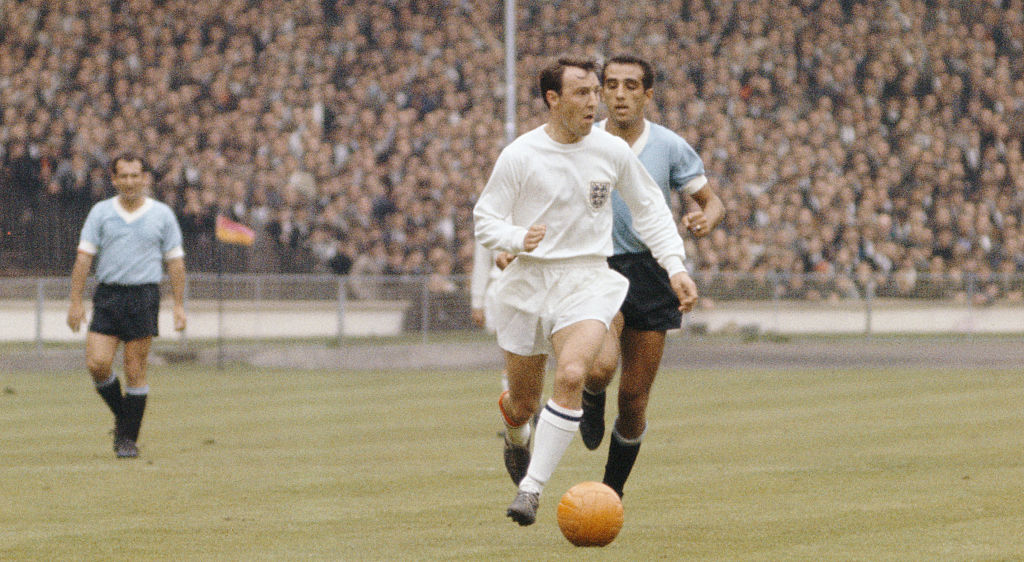
English football will probably never see another striker like Jimmy Greaves; the Spurs and Chelsea legend chalked up a record 357 top-flight goals and finished as First Division top scorer no fewer than six times.
Injury during the group stage meant he lost his place to Geoff Hurst at the 1966 World Cup – not featuring in the final and not even receiving a winners’ medal until a FIFA rule change 2009 – but he remains one of the Three Lions’ most efficient scorers with 44 goals in 57 caps.
9. Wayne Rooney
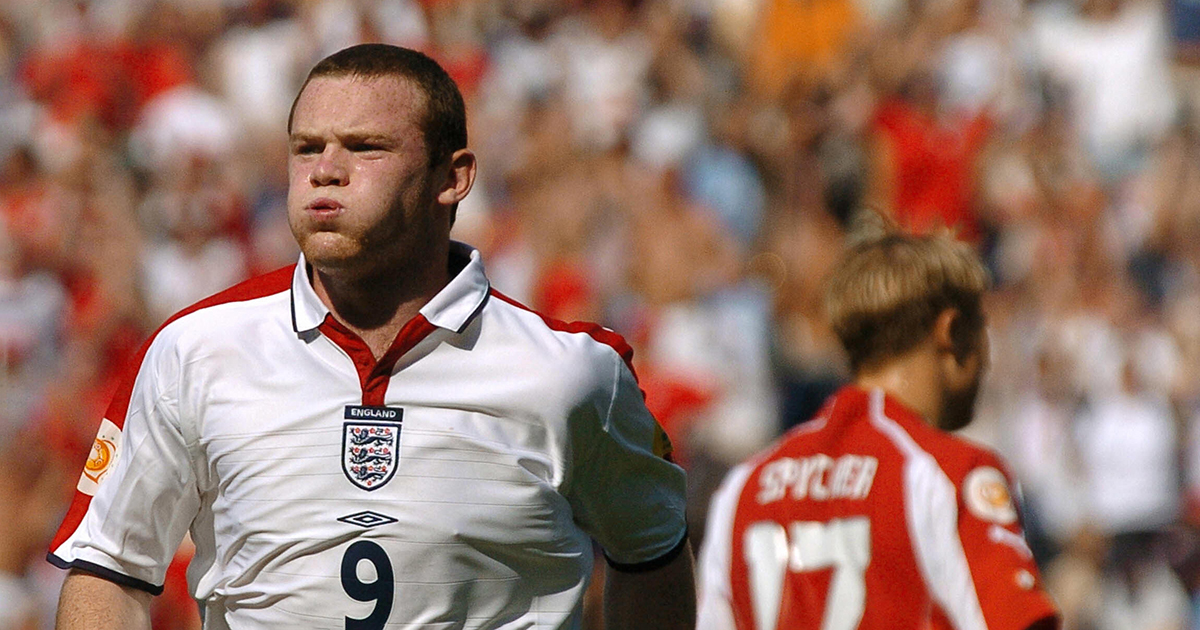
When Rooney burst onto the scene as a 16-year-old with his now iconic last-minute winner for Everton against Arsenal, it felt as though English football had just been introduced to someone very special indeed.
And so it proved as he went on to become record scorer for Manchester United – scoring some more of the Premier League’s most memorable goals in the process (who could forget his outrageous Manchester-derby winning overhead kick or thumping volley against Newcastle?) – and England, both of whom he captained.
8. John Charles
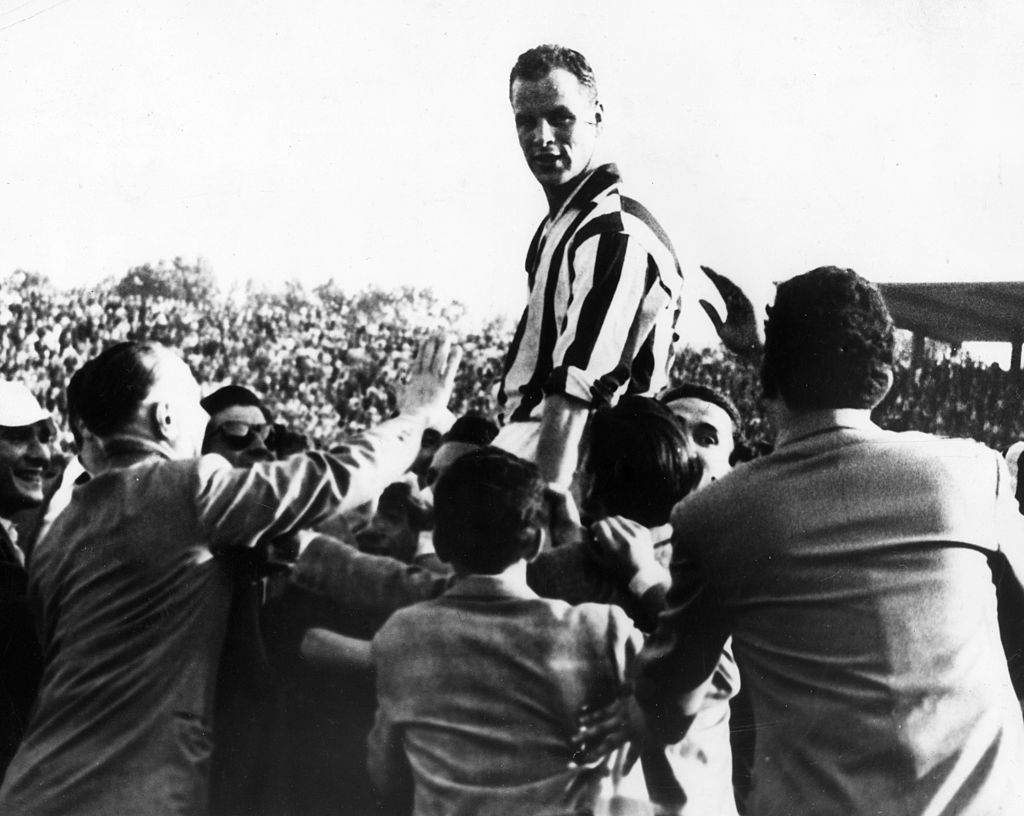
How good was the Gentle Giant? Well, England legend Billy Wright was once asked to name the best centre-forward he’d faced. He said John Charles. Nat Lofthouse was asked to name the best centre-back he’d faced. He said John Charles.
As Bobby Robson put it, no other player has been world-class in two positions, but Charles – “a team unto himself”, in Jack Charlton’s words – managed it. In attack, he politely bullied defenders and had two great feet competing in a three-way Golden Boot race with his head. Wales reached the 1958 World Cup quarter-finals and could’ve gone further had Charles not been hacked to pieces by defenders. From 1957 to 1962, his Ballon d’Or placings read: 6th, 4th, 3rd, 7th, 8th, 8th. Decent pipes, too.
7. Graeme Souness
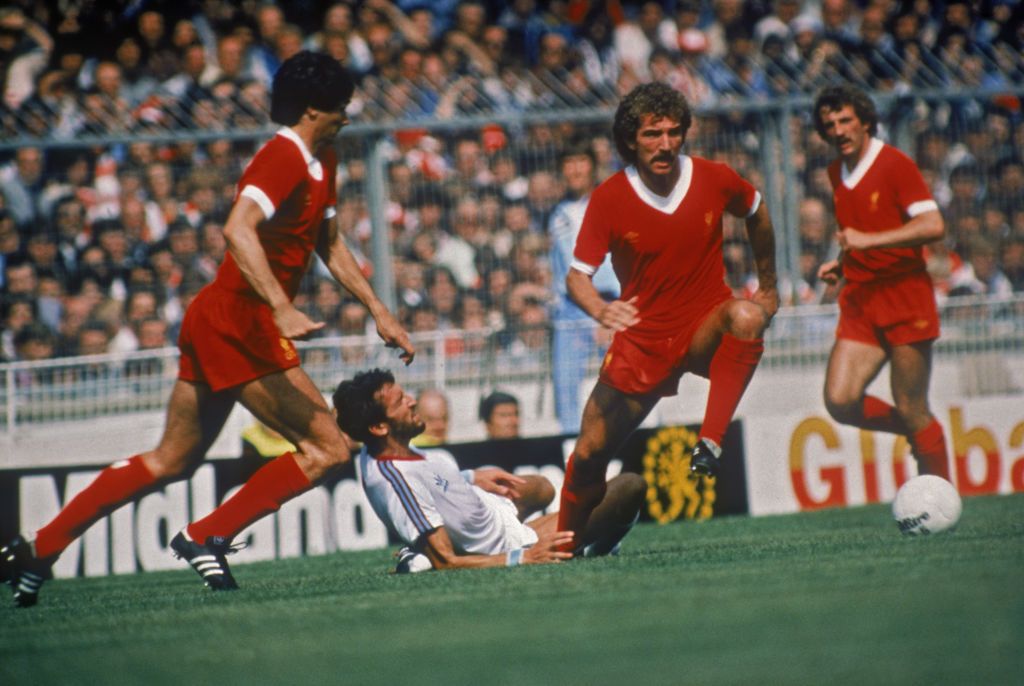
Younger supporters might know Graeme Souness better for his hard-hitting opinions as a TV pundit, but there was no denying his class as a midfielder.
Hard as nails he may have been, but shouldn’t overshadow his ability to dictate play – not least for the great Liverpool team of the 1980s.
His 54 caps for Scotland included appearances at three World Cups, with three European Cups to his name.
6. Gareth Bale
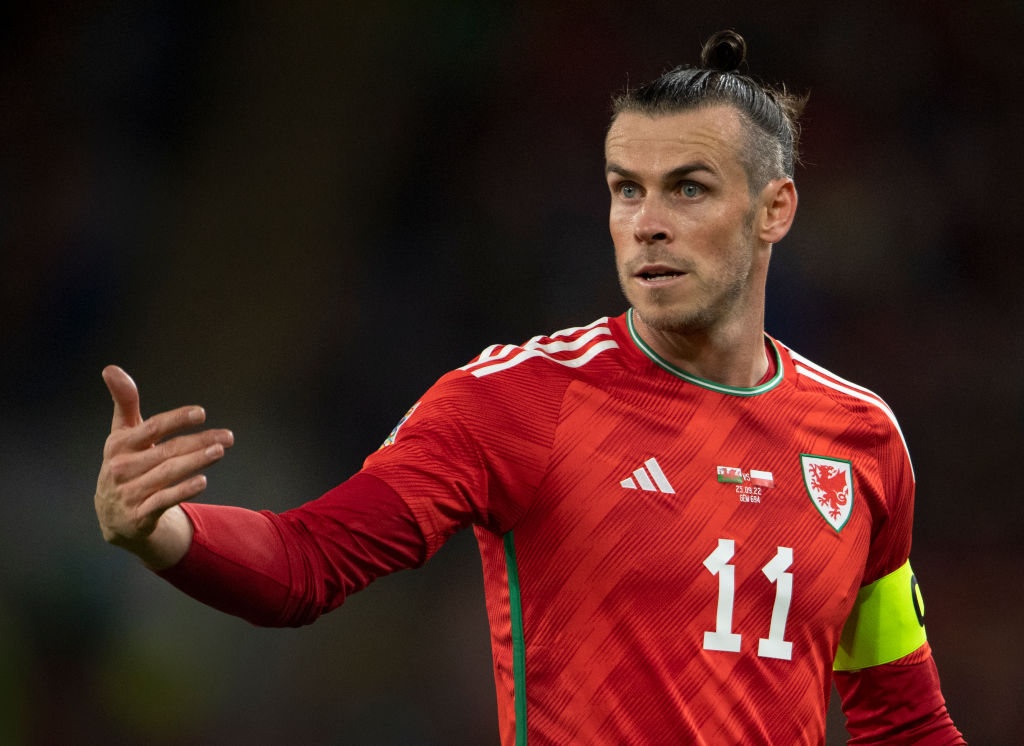
Leading Cymru to only their second World Cup takes Bale to No.1 of the Welsh. Or maybe it’s his record-breaking 38 Wales goals, his five players’ awards within three years at Spurs, or five Champions League triumphs with Real Madrid. All right, four meaningful ones. ‘Just’ four.
As a tearaway tearing away down the left, an unstoppable worldie-merchant cutting in from the right, and finally an inspirational captain dominating through the middle, Bale has consistently put in match-winning performances in the biggest games, up to a World Cup play-off brace featuring his seventh international free-kick goal.
He has two Champions League Final winners, including – sorry, Zinedine – the best goal ever seen in a European Cup showpiece, and won a Copa del Rey Clasico Final with a mesmerising run through Barcelona’s technical area. He’d scored virtually the same goal against Iceland six weeks earlier.
5. Denis Law
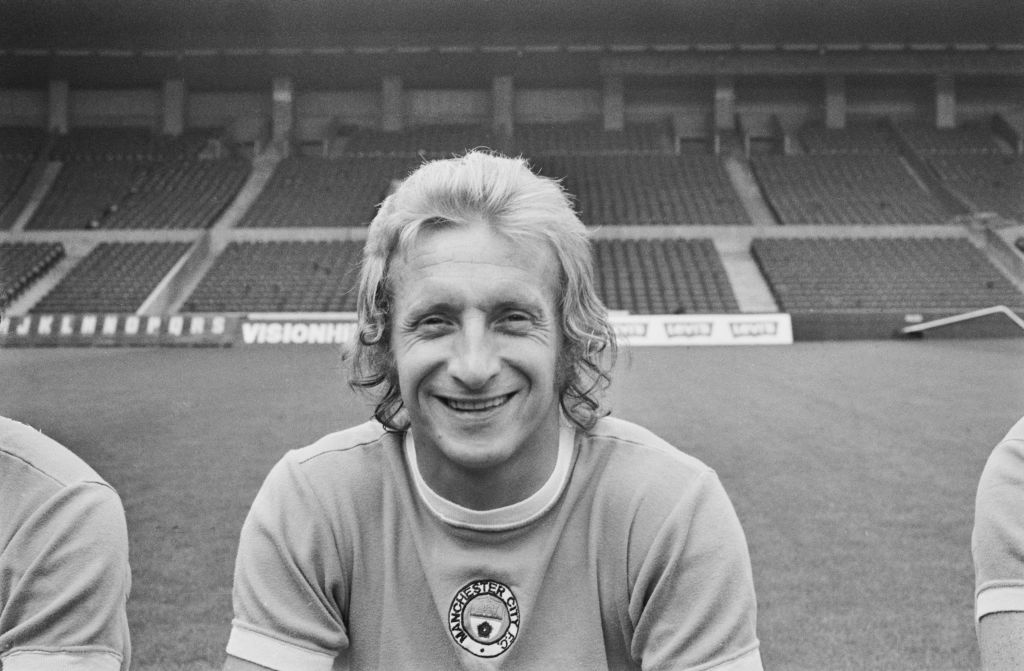
The Lawman is the only Scot to have ever won the Ballon d’Or (1964) and is joint-top scorer with Kenny Dalglish for the national team.
Impressively, he scored his 30 goals in just 52 international appearances – and had a welcome knack for scoring against the Auld Enemy. Dennis Bergkamp would reveal that he was named after the Aberdonian, with a Dutch registrar refusing to accept one ‘n’ in Denis.
4. Bobby Moore
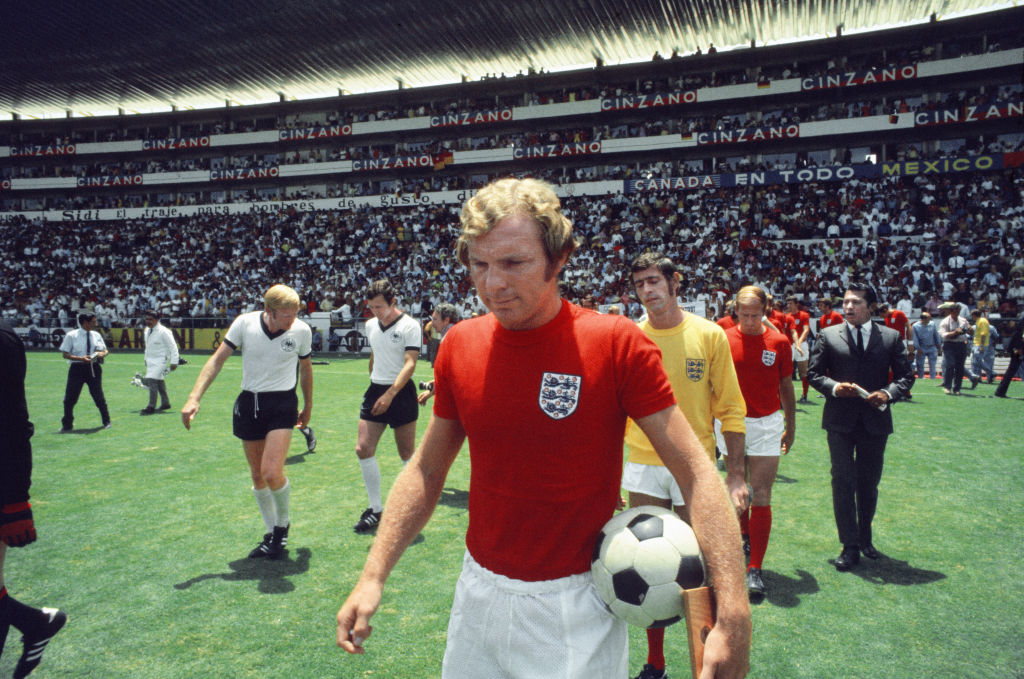
England’s World Cup-winning captain, Moore was an absolute Rolls-Royce of a player – with his prowess at the back summed up by Pele calling him the greatest defender he ever faced.
The first footballer to win BBC Sports Personality of the Year, his name will forever be etched into the history of the national team and West Ham – with whom he spent 16 years, captaining them to FA Cup and Cup Winners’ Cup success in 1964 and 1965 respectively.
3. Bobby Charlton
“Nobody embodies the values of Manchester United better than Sir Bobby Charlton,” notes the club’s official website about one of the ‘Busby Babes’ – who, having survived the horror of the Munich Air Disaster, became a legend on the domestic, European and international stages.
A winner of three First Division titles, the European Cup (as United became the first English team to triumph in the competition in 1968) and – of course – the 1966 World Cup, his name will forever be synonymous with the English game.
2. Kenny Dalglish
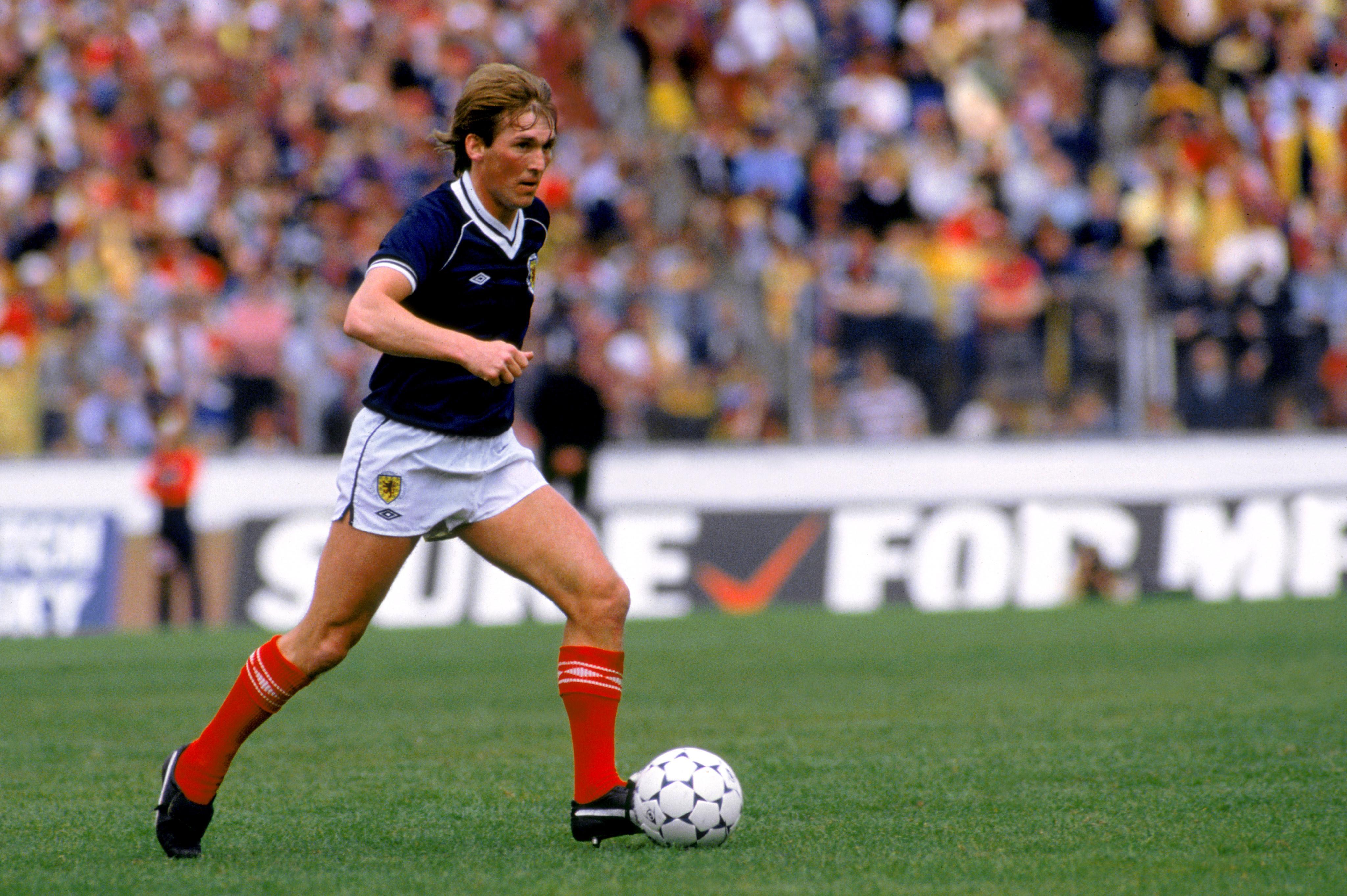
Known simply as ‘King Kenny’ north of the border, you won’t find many who will dispute his ranking as top Scot.
Dalglish is Scotland’s most capped player (102) and top scorer (30), and can look back with pride at representing his country at three World Cups. He is a living legend at Celtic Park and Anfield – with three European Cups and enough domestic honours to fill a few mantlepieces – but that hardly does the man justice.
Following the Hillsborough tragedy, he took so much on his shoulders to care for a club and a community. Iconic is, at times, an overused word in football. Kenny Dalglish is iconic.
1. George Best
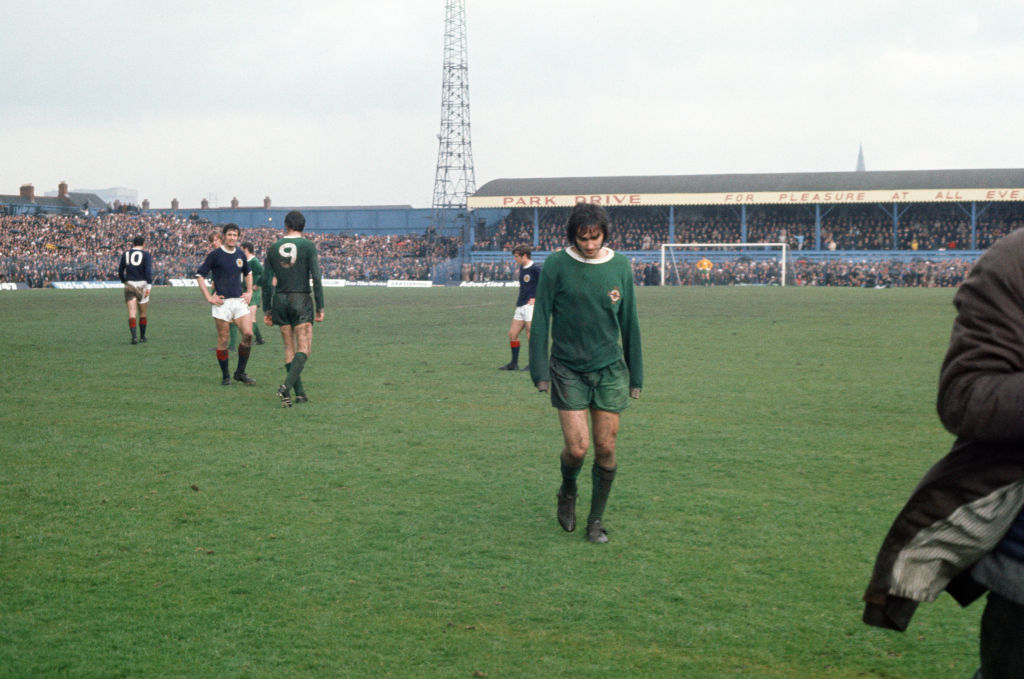
It really couldn’t have been anyone else, could it? “Maradona good, Pele better, George Best,” as the Northern Irish locals to say about the footballing icon.
Whether he was better than Diego Maradona and Pele remains to be seen, but there was no doubting that Best possessed the ability of both. Criminally, Best was only capped 37 times for Northern Ireland, scoring nine times, and is considered one of the best players never to feature at a World Cup.
Considered one of the most talented players to ever play the game, Best won the Ballon d'Or, the European Cup and is immortalised outside Old Trafford alongside Law and Charlton.







